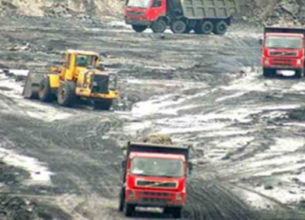FOREST COMMITTEE APPROVES SCHEME TO ‘TRADE’ IN FORESTS
10, Jan 2020

Prelims level : Environment – Conservation
Mains level : GS-III Conservation, Environmental Pollution and Degradation, Environmental Impact Assessment
Why in News?
- The Forest Advisory Committee, an apex body tasked with adjudicating requests by the industry to raze forest land for commercial ends, has approved a scheme named “Green Credit Scheme”, that could allow “forests” to be traded as a commodity.
- If implemented, it allows the Forest Department to outsource one of its responsibilities of reforesting to non-government agencies.
Current Scenario:
- In the current system, industry needs to make good the loss of forest by finding appropriate non-forest land — equal to that which would be razed.
- It also must pay the State Forest Department the current economic equivalent called “Net Present Value “of the forest land.
- It’s then the Forest Department’s responsibility to grow appropriate vegetation that, over time, would grow into forests.
Why do we need a New Scheme?
- There exist a few barriers in the proper implementation of the current scheme. Some of the major barriers are as:
- Industries have often complained that they find it hard to acquire appropriate non-forest land, which has to be contiguous to existing forest.
- Nearly ₹50,000 crore had been collected by the Centre over decades, but the funds were lying unspent because States were not spending the money on re-growing forests.
- The Supreme Court intervened finally, which resulted in new rules to administer this fund. However, inspite of the funds (About ₹47,000 crore ) that has been disbursed to States, it has barely led to any rejuvenation of forests.
‘Green Credit Scheme’
- The proposed ‘Green Credit Scheme’, allows agencies (that could be private companies, village forest communities) to identify land and begin growing plantations.
- After three years, they would be eligible to be considered as compensatory forest land if they met the Forest Department’s criteria.
- An industry needing forest land could then approach the agency and pay it for parcels of such forested land, and this would then be transferred to the Forest Department and be recorded as forest land.
- The participating agency will be free to trade its asset (that is plantation) in parcels, with project proponents who need forest land.
- This is not the first time that such a scheme has been mooted. In 2015, a ‘Green Credit Scheme’ for degraded forest land with public-private participation was recommended, but it was not approved by the Union Environment Minister, which was the final authority.
Benefits of the Scheme:
- The scheme will encourage plantation by individuals outside the traditional forest area and will help in meeting international commitments such as sustainable development goals and nationally determined contributions.
- One of India’s prongs to combat climate change is the Green India Mission that aims to sequester 2.5 billion tonnes of carbon by 2020-30, and this involves adding 30 million hectares in addition to existing forest.
Criticism:
- However, few of the ecologists have opined that this scheme will not solve the core problems of compensatory afforestation.
- They are of the view that this scheme will create problems of privatising multi-use forest areas and create monoculture plantation plots. Here, forests are treated as a mere commodity without any social or ecological character.
About Forest Advisory Committee:
- The Forest Advisory Committee (FAC) is a Statutory Body created under the Forest Conservation Act, 1980.
- The Forest Advisory Committee functions under the aegis of Ministry of Environment, Forest and Climate Change (MoEFCC).
- While its role is advisory, it comprises of official members, including the top bosses of the forest bureaucracy and three independent experts, who are the non-official members.
- This committee considers questions on the diversion of forest land for non-forest uses such as mining, industrial projects, townships and advises the government on the issue of granting Forest Clearances.










